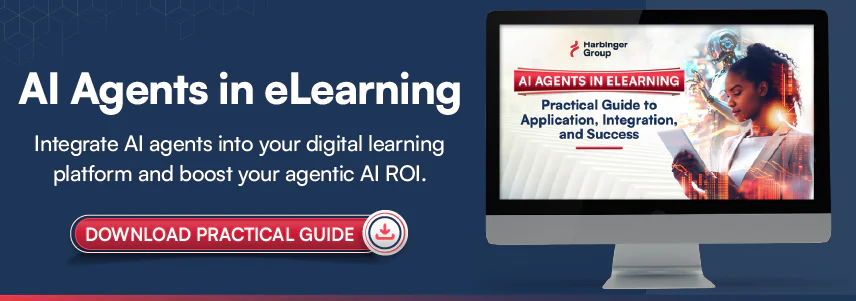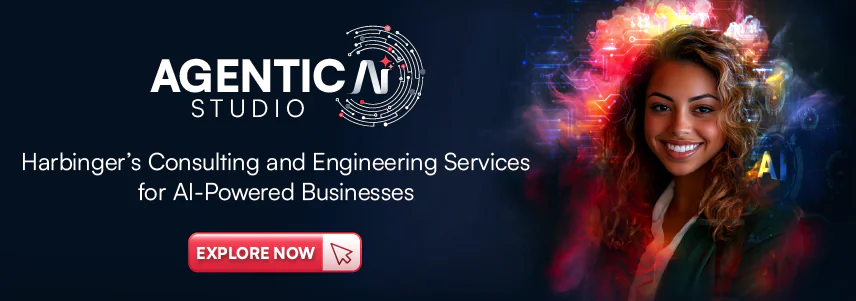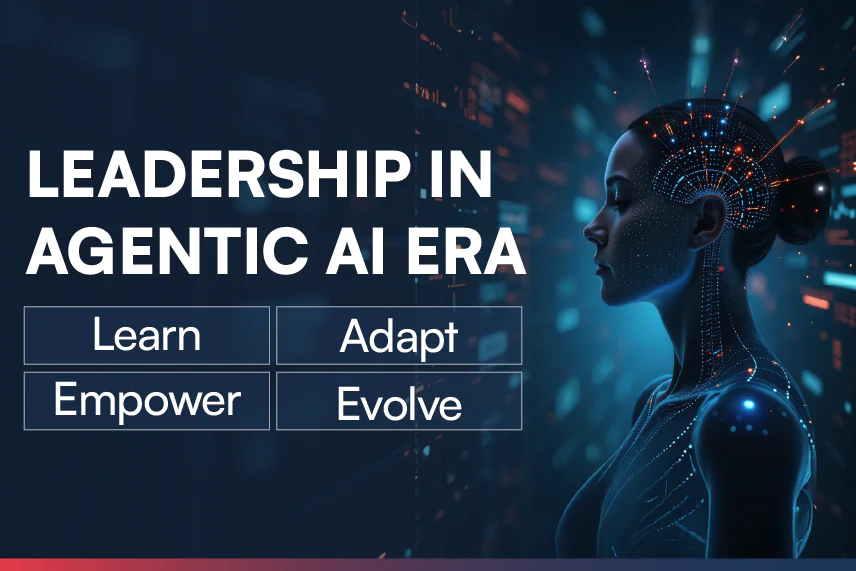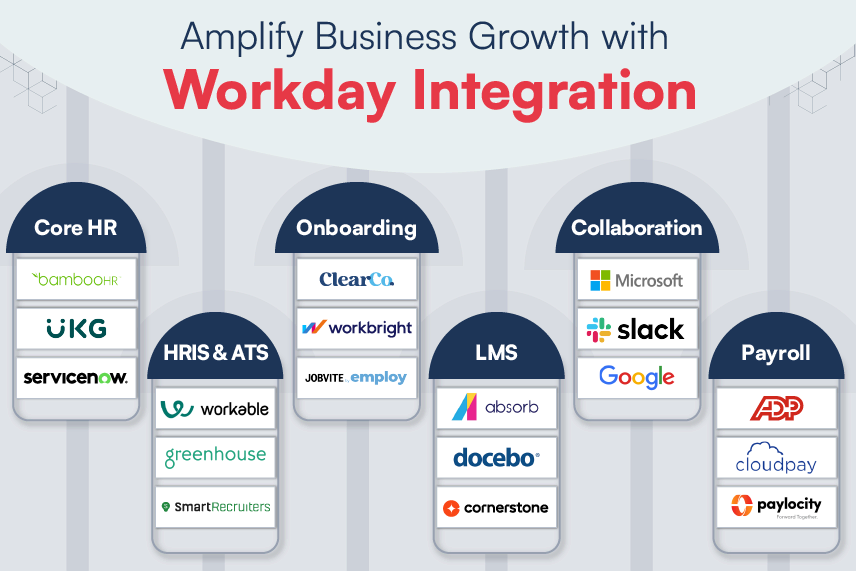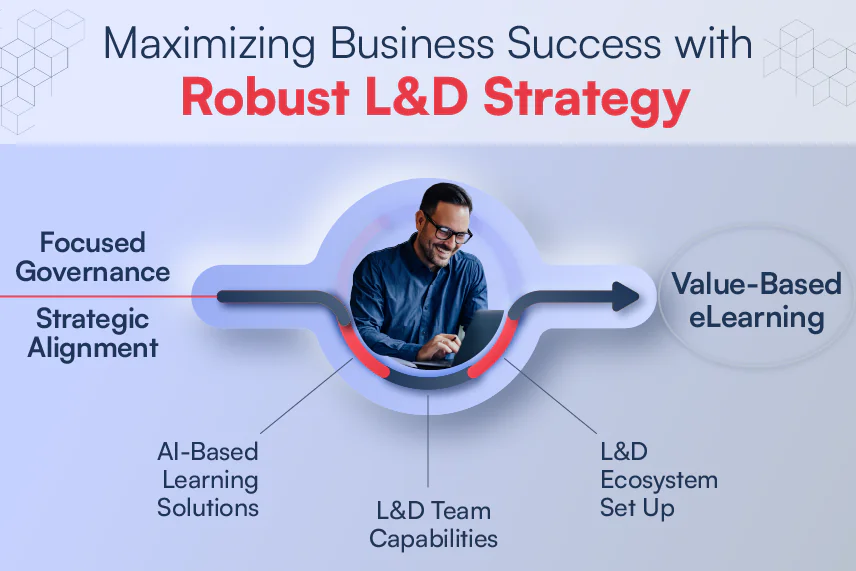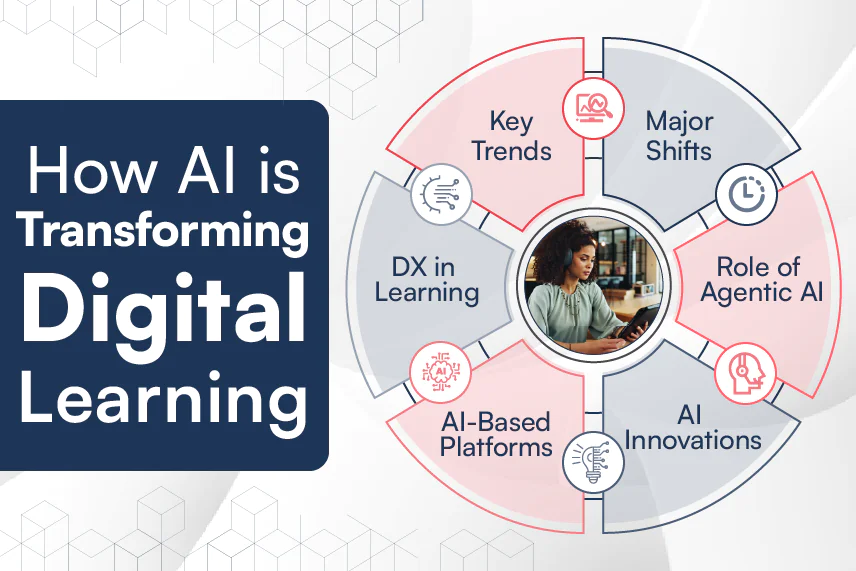
AI in digital learning automates the design, development, and delivery of future-ready learning content. Importantly, AI-based digital learning solutions hyperpersonalize learning experiences and make learning more accessible and impactful, leading to business success.
For digital learning businesses, AI represents a golden opportunity to reimagine the way they operate, scale, and compete in the industry. With a proven AI framework, large-volume content producers can redesign their content production process and significantly reduce development time.
To delve into the role of AI in redefining digital learning businesses, Harbinger Group recently conducted a Power Hour with industry experts, Lindsey Padrino, Chief Strategy Officer at Skillsoft, Poonam Jaypuriya, Vice President – eLearning at Harbinger Group, and Shrikant Pattathil, President & CTO at Harbinger Group. Our esteemed panelists explored the evolving dynamics of digital learning in the AI era. Watch the engaging conversation!
Major Shifts and Trends for Digital Learning Providers
Here are the major shifts in L&D driven by AI that digital learning providers are looking to adapt to:
1. AI is Transforming Learning: Digital learning providers are finding new ways to use AI in various forms to take learning to the next level. Content snippets or course packages can be used as engaging and reinforcement learning materials.
2. AI is Making Static Courses Irrelevant: Digital learning businesses are thinking about converting static course catalogs into a dynamic AI-powered learning ecosystem.
3. AI is Reshaping Business Models: Digital learning leaders are exploring how AI can transform their business models and enable them to create new value for customers and learners.
4. AI is Changing the Future of Learning: There is a growing focus of digital learning companies on how AI agents can assist in new tasks, enhance skills, and support the evolving needs, including learning needs, of the modern workforce.
“AI is really providing us new ways to personalize learning content and defining new ways of designing content. In fact, the role of instructional designer is changing. What we are witnessing is not just a simple technological evolution, but a fundamental shift in how we look at designing, delivering, and even consuming learning.”
Poonam Jaypuriya, Vice President – eLearning, Harbinger Group
Here are the top five trends involving AI that are gaining momentum in the digital learning space:
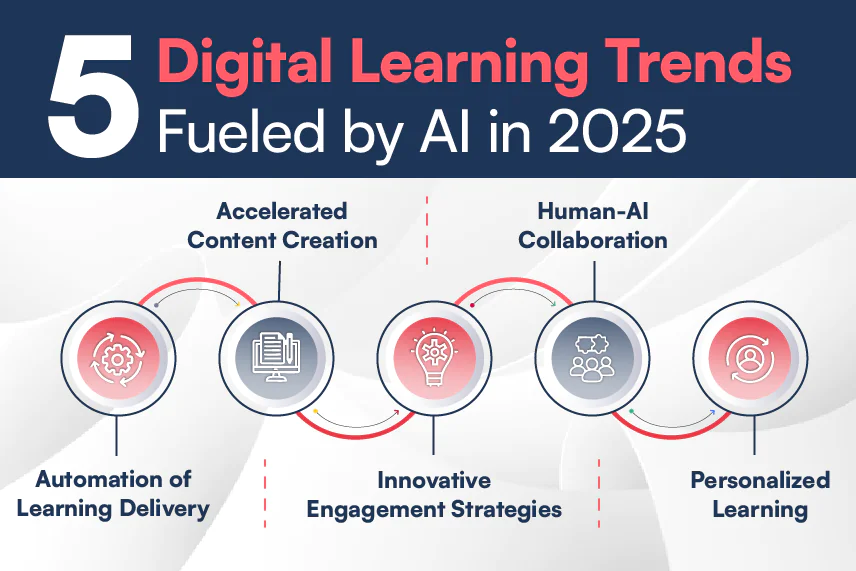
1. Accelerated Content Creation: Digital learning businesses are discovering how AI can generate topnotch content, reducing dependency on SMEs while maintaining high content quality.
2. Human-AI Collaboration: Instead of thinking of AI as a standalone solution, digital learning providers are focusing on how AI and human expertise can work together to enhance learning outcomes. This approach will make learning experiences more dynamic and effective.
3. Automation of Learning Delivery: Digital learning companies are streamlining the way learning is delivered through AI-based automation. AI in digital learning makes the delivery process more efficient and scalable.
4. Innovative Engagement Strategies: Digital learning leaders are finding new ways through AI to engage learners beyond traditional methods.
5. Personalized Learning: Digital learning businesses are tailoring learning content using AI to meet the unique needs of individual learners and deliver a more customized experience.
How AI is Impacting Digital Learning Platforms
Digital learning platforms are evolving from isolated systems to connected learning ecosystems. AI-powered platforms are revolutionizing digital learning, making it more aligned with both individual and organizational goals. Let’s learn how AI enhances digital learning platforms:
1. Metadata and Skill Taxonomies: AI-powered learning platforms utilize metadata and structured skill taxonomies to accurately map learners to relevant skills and learning resources. By analyzing learner profiles, job roles, and learning behaviors, these platforms create dynamic, personalized learning paths that evolve based on real-time performance and emerging skill needs.
2. Skills as Traceable Atomic Unit: AI-driven learning platforms break down competencies into granular, trackable skills. By integrating with HRIS and performance management systems, they enable organizations to monitor skill acquisition, proficiency levels, and application in real time, ensuring alignment with workforce development and business goals.
3. Beyond Role-Based Learning: AI-based learning platforms enable organizations to transition from role-based learning to skill-based learning, providing more flexible and dynamic career development opportunities.
With AI, digital learning platforms can transform learning quality and increase interactivity:
1. AI-Driven Learning Simulations: Digital learning platforms can leverage AI-powered simulations, including conversational AI and virtual environments, for real-time feedback, adaptive challenges, and hands-on learning experiences.
2. Blending Learning Approaches: AI enables digital learning platforms to seamlessly integrate assessments with applied learning, dynamically adjusting content based on learner performance. This approach mirrors real-world problem-solving, improving skill retention and practical application.
3. Interactivity Over Passive Learning: AI-driven digital learning platforms help move beyond static content by incorporating scenario-based learning, intelligent tutoring, and adaptive pathways. With AI in digital learning, organizations can foster deeper engagement and personalized learning experiences.
AI in Digital Learning: Content Development, Delivery, and Consumption
AI is reshaping digital learning at every stage, from content development to delivery to consumption.
Content Creation: AI in digital learning can significantly accelerate course content development, reducing the production time from months to days. It now enables multimodal content generation, including videos, audio-based content, simulations, and scenarios. Digital learning businesses can use AI to modernize their vast libraries of existing instructional content, repurposing it into more engaging and interactive formats.
Content Delivery: AI is transforming content delivery by personalizing learning experiences to match individual skills, roles, and career trajectories. AI-powered tutors, role-playing bots, and coaching assistants provide interactive learning beyond traditional methods. Adaptive learning with AI is another key advantage to consider. As reskilling and upskilling take center stage, AI in digital learning emerges as a game changer. For instance, it maps learning pathways to specific skills, ensuring more targeted, effective training.
Content Consumption: AI-powered interactive assistants enhance digital learning by delivering instant, multilingual support via chat or voice, enabling seamless access to learning content. They optimize content consumption by providing personalized, on-demand assistance, reducing wait times, and accelerating onboarding. AI in digital learning ensures efficient knowledge absorption, making learning more accessible, engaging, and adaptive.
3 Vital Factors for Effective Digital Learning Transformation
By integrating AI throughout the learning content lifecycle, organizations can create smarter, more adaptive digital learning experiences. However, the key to effective digital learning transformation is not solely dependent upon technology (AI); it lies in two other factors: people and processes
Technology: While AI-driven platforms enhance digital learning experiences, it’s not just about scaling content creation but also personalizing learning paths and adapting in real time based on learner interactions. AI in digital learning doesn’t just align with instructional design—it can also optimize it dynamically.
Process: Content lifecycle management is not only about maintaining quality but also about continuous improvement through data-driven insights. AI in digital learning can assist in automated content tagging, analytics-driven refinements, and real-time feedback loops to ensure learning remains effective and relevant.
People: AI in digital learning can augment rather than replace human expertise. SMEs and learning professionals are crucial for validating AI-generated content, ensuring contextual accuracy, and enhancing learner engagement.
AI-driven platforms enable personalized, scalable, and adaptive digital learning experiences by integrating instructional design principles, simulations, and interactive elements. However, balancing automation with human oversight and structured processes remains critical to maintaining content quality, relevance, and lifecycle efficiency in AI-powered digital learning.
2 Powerful Innovations Enabled by AI in Digital Learning
1. AI-Driven Learning Experience Transformation
Interactive and Immersive Learning: Learning is moving from traditional, passive formats (like 2D videos or text-based content) to more interactive experiences. AI technologies are paving the way for 3D learning environments, which can offer learners more dynamic interactions with content.
AI-Driven Practice Simulators: These tools enable learners to practice critical skills in simulated environments. Such simulations provide a risk-free space for learners to hone their skills before applying them in real-world settings.
2. AI-Based Personalization in Digital Learning
Agentic AI in Personalized Learning Coaches: The rise of agentic AI represents an exciting development in personalized learning. AI systems functioning as personalized coaches can guide learners through complex problem-solving in real time.
AI-Powered Learning Agents: Agentic AI goes beyond merely offering instructions; it can interactively support the learner’s entire journey. These agents can understand a learner’s skills, goals, and even their personal preferences, adapting learning paths to best suit the individual.
Agentic AI is the Future of Digital Learning
Having addressed the role of AI in digital learning, it’s now time for you to take the next step. Partner with us to leverage agentic AI for advancing your digital learning business or drive workforce learning and development success. AI Harbinger, we build products and solutions that transform the way modern employees work and learn.
Our Agentic AI Studio helps digital learning providers transform the conventional content production cycle through AI-driven content creation, assessment, personalization, and localization. Improve scalability, agility, time-to-market, efficiency, and measurable value in your digital learning business. Connect with our experts today.

